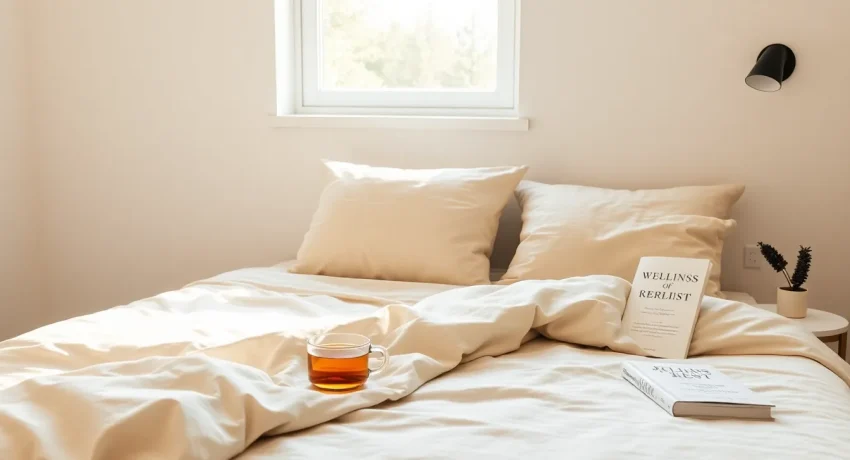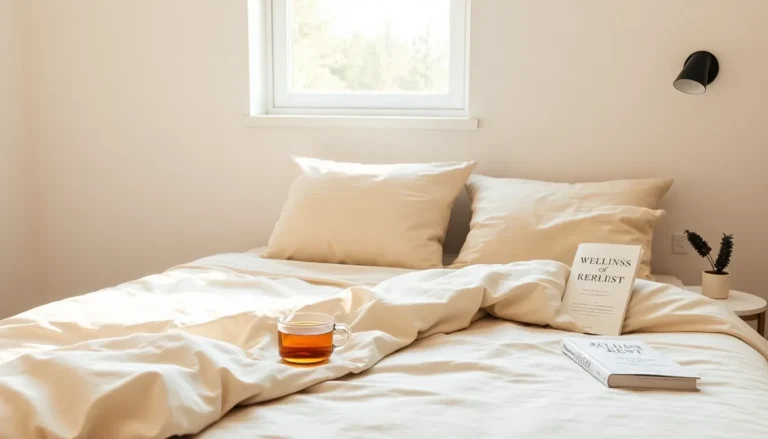Table of Contents
ToggleIn today’s hyper-paced world, many individuals pride themselves on the never-ending hustle. They skip lunch, forego vacations, and sprinkle caffeine like confetti, only to end up worn out and cranky. The truth? Rest isn’t just a luxury: it’s a necessity. So, if your idea of “self-care” is binging the latest show while scrolling through work emails, it’s high time to rethink your strategy. Let’s jump into why resting well isn’t just good for the soul, but essential for success.
The Importance Of Rest And Recovery

Physical Benefits Of Rest
Resting isn’t merely an act of doing nothing: it plays a crucial role in physical health. During sleep, the body engages in cellular repair, muscle growth, and hormone regulation. Without adequate rest, individuals risk facing chronic stress, fatigue, and a weakened immune system. Active lifestyles, from athletes to weekend warriors, thrive on recovery periods. For them, taking a break helps prevent injury and enhances performance. By respecting the need for rest, one can enjoy sustained energy and vitality throughout the day.
Mental Health And Stress Relief
Plus to physical benefits, rest is vital for mental well-being. A well-deserved break can relieve stress, improve mood, and enhance cognitive abilities. Overworking creates a vicious cycle of stress and anxiety, leading to burnout. On the flip side, incorporating breaks into a daily routine promotes better focus and mental clarity. Practicing mindfulness during those restful moments can also provide insight, allowing one to approach challenges with renewed vigor. In essence, rest restores not just the body, but the mind too.
Rest’s Role In Productivity
Rest isn’t a pause from productivity, it’s a crucial ingredient for it. Many assume that working non-stop will yield better results, but in reality, fatigue hampers performance. Short breaks during work can lead to greater creativity and problem-solving skills. Research shows that taking time to rest can boost overall productivity by allowing ideas to marinate. So, next time someone praises their long hours, remind them: effective work is not about grinding but finding the balance between effort and rejuvenation.
Signs That You Need A Break
Recognizing the need for rest is essential in preventing burnout. Here are a few signs that it’s time to hit the brakes:
How To Incorporate Rest Into Your Routine
Feeling consistently tired, experiencing irritability, or noticing a decline in focus? These are red flags. Incorporating rest into daily routines can help combat these symptoms. Whether it’s scheduling a short walk, enjoying a hobby, or simply breathing for a few minutes, these tiny breaks accumulate to keep the energy levels balanced.
Techniques For Effective Rest
Techniques like power naps, yoga, or deep-breathing exercises can augment recovery. Setting aside time for relaxation each day, even if it’s just fifteen minutes, can make a significant difference. On the weekends, indulging in leisure activities or time with loved ones provides both rest and rejuvenation.
Creating A Restful Environment
A restful environment can significantly enhance the quality of rest. Factors like lighting, temperature, and noise levels play a role in creating a soothing atmosphere. Soft lighting can signal the body that it’s downtime, while cooler temperatures often make for better sleep. Adorn the space with calming scents, such as lavender or chamomile, to promote relaxation. By cultivating an environment tailored for rest, individuals can amplify the restorative benefits, guiding them into deeper and more refreshing stages of relaxation.
Common Rest Myths Debunked
Many myths surround the concept of rest that can hinder one’s ability to unwind effectively. One common misconception is that napping is a sign of laziness. In reality, naps can rejuvenate the mind and improve productivity. Another myth suggests that resting equates to inactivity. But, engaging in gentle activities like meditation or light reading constitutes productive rest. By debunking these myths, individuals can better appreciate the multifaceted nature of rest, adopting it as a crucial aspect of daily life.




